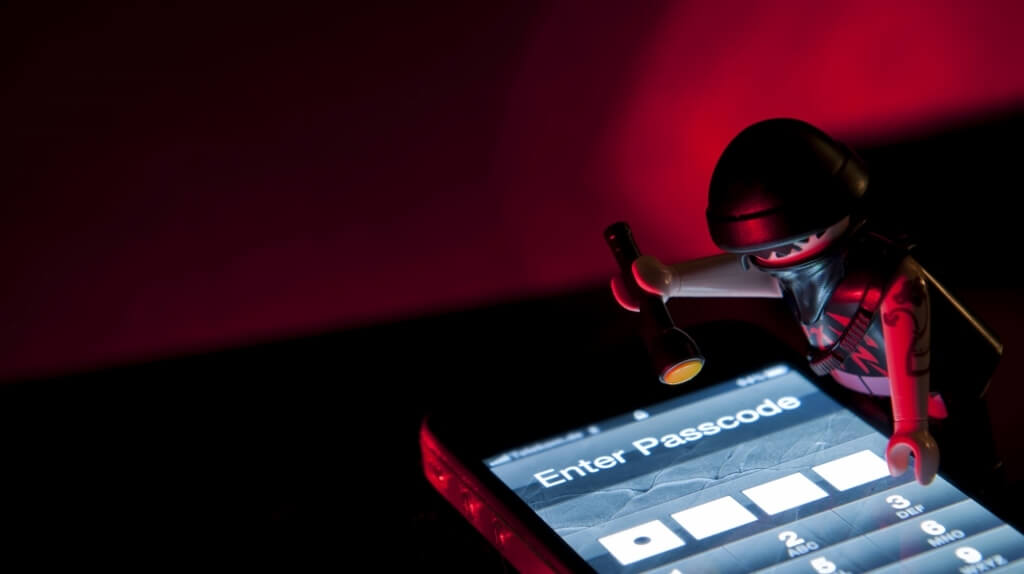Five Everyday Threats To Your Data Security
From lost phones to rogue insiders, the threats are coming thick and fast.

When it comes to our purses, wallets and keys, we go to great lengths to ensure they are safe and secure at all times, but can the same be said for our data?
It’s obvious that walking around in public waving your money about is a silly thing to do, yet this is exactly what many people do with their mobile phones and smart devices. Caution seems to go out the window in favour of quickly checking emails or seeing the latest updates on social media.
As the barriers between our work and personal lives become increasingly blurred, the way we interact with our personal devices is becoming more frequent and impulsive.
Recent research by Apple found that iPhone owners unlock their devices an average of 80 times a day, or once every 11 minutes and 15 seconds. However, with cybercrime becoming ever more creative and pervasive, we often don’t realise just how many risks we are taking every time we whip out our phone.
In fact, studies show that many smartphone users are either ignorant to the risks they’re taking, or simply think that bad things ‘won’t happen to them’. Unfortunately though, the statistics paint a very different picture and it’s high time we changed our attitudes.
In order to better appreciate data security, it’s important to be aware of the main risks that are out there. Below are five examples of major threats to data encountered during everyday life for most people:
The lost/stolen phone
Perhaps unsurprisingly, lost and stolen phones are the number one cause of data breaches. Once in the hands of the wrong person, an unprotected phone can be an open door straight into our lives, often containing all the information required for identity theft, financial fraud and a host of other criminal activities.
Missed or ignored software updates
At some time or another, we’ve all been guilty of ignoring requests to update the software on our smartphone or laptop. Many of these updates involve having to restart the device, which can be inconvenient if you’re trying to get something finished.
However, these updates often contain critical security patches to new vulnerabilities, so the longer you wait to install the patch, the more danger you are unnecessarily putting yourself in.
It may seem like a trivial matter, but recent data breaches such as the one suffered by the NHS earlier this year show that failure to act when prompted can be the difference between staying protected and suffering significant data loss.
Evil twins
Evil twins are spoofed Wi-Fi hotspots created by hackers with the sole purpose of stealing data and sensitive information. Often, they fool users by imitating a nearby legitimate hotspot operated by a local café or business, using the same name but not requiring a password, allowing for easy access.
Unfortunately for anyone logging onto it, the fake hotspot can give the hacker complete oversight of what the user is doing, providing free reign to harvest information such as login credentials and personal passwords for later use.
Bogus apps
Bogus apps are on the rise and becoming more and more convincing to the untrained eye. When unwittingly installed on a device, many of them attempt to trick users into revealing sensitive information and credentials, while others will act as spyware, or secretly install malicious software on the device that allows hackers to monitor user behaviour.
The insider threat
In the modern business environment, efficient mobile/remote working often requires access to sensitive data at all times. But while providing this access (usually via remote network access from our work or personal devices) ensures employees can be as efficient as possible at their jobs, it also puts companies at significant risk.
A careless mistake or purposeful action from a single ‘inside’ individual can quite easily lead to highly sensitive information ending up in the wrong hands.
The fact that the devices used to access this data travel around with the employees, outside of the control of the business, only makes the threat that much more potent. Going back to the first point on this list, lost or stolen devices can not only lead hackers to personal information, but in many cases, they can also be a treasure trove of information about the company the victim works for.
How to minimise the threats posed
As with so many security issues, the best way to minimise risk is through vigilance and taking effective protection measures. From a device perspective, complex passwords and multi-factor authentication can be very effective first lines of defence in the event of loss or theft.
If you work for a large corporation and/or often work remotely, it’s also a good idea to talk to your IT team about the mobile security solutions they have in place.
Many of the best solutions out there today can keep sensitive data on phones, laptops and tablet completely secure, without the need to download anything onto the device itself. This also means that if a device ever goes missing it can be wiped remotely, significantly reducing the risks of a major data breach.
The same vigilant approach applies to the use of public Wi-Fi. If in any doubt, check with someone who works in the location and never access a strangely named hotspot, no matter how urgently you need to get online.
Effective security doesn’t have to involve big expense, but it does require a few changes to behaviour. For example, installing new updates promptly rather than putting them off and taking the time to check mobile apps are legitimate by looking closely at developer information before downloading them.
Much like our wallets and keys, our digital identities are extremely valuable, so it’s time we started to look after them properly. With just a few small changes to the way we go about our daily lives, we can ensure our data stays safe, far out of reach of the many criminals trying to get their hands on it.
Rich Campagna, CEO at Bitglass.
Thanks for signing up to Minutehack alerts.
Brilliant editorials heading your way soon.
Okay, Thanks!

